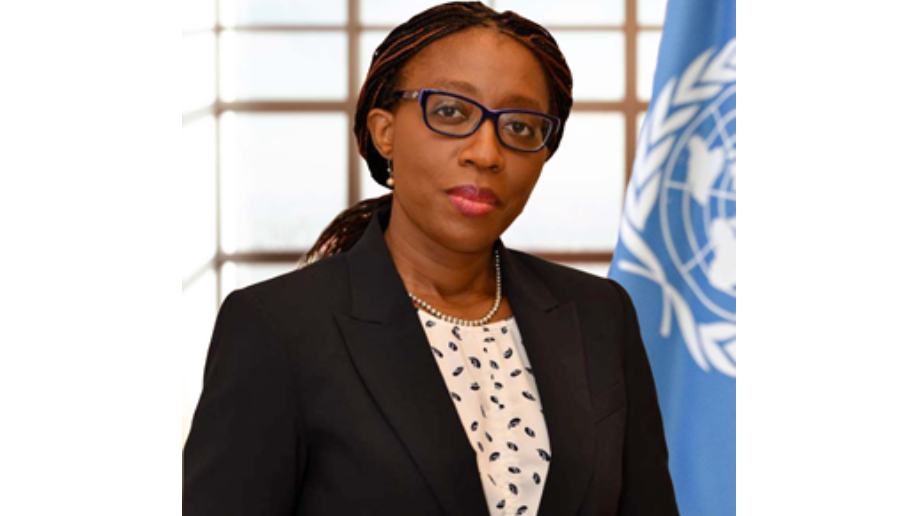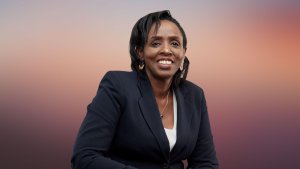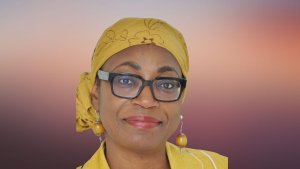In this interview, Dr. Vera Songwe, economist and Executive Secretary of the United Nations Economic Commission for Africa reflects on the ways that African governments have handled COVID-19, the role of the Continental Free Trade Agreement in turbo-charging future growth, the vital role of infrastructural investment and mobilising domestic resources for building forward better and greener.
We’d be keen to get your reflections first on how African governments have performed in relation to the Covid pandemic, and then whether you think this might prompt a rethink of direction and strategy.
I think Africa’s response has been quite strong and we should give credit to the fact that three things happened. One, Africa had the benefit of “coming last” and so got a little bit more time to prepare. The sheer fright of watching what was happening in countries whose health systems were meant to be much better than ours led to most (not all) of our leaders taking it seriously early on. We saw a lot of mass information campaigns, and handwashing campaigns very early in March. We didn’t have any debates about wearing masks, we just got on with putting them on. So that probably helped us quite an amount, especially given we have a culture and a society that meets a lot. We are social beings by definition. The other thing that helped was over 42 countries closed their borders at the peak, or what we thought was the Africa peak. We not only closed borders but also closed schools, markets and churches, and there were curfews in many countries, so there was no evening activity. All of that helped enormously to combat the disease, so by the time the huge wave was meant to come, we were ready for it and in various stages of lockdown. There were spikes but they were mainly controlled. Because it came a bit later to us, we were really prepared. The most important fact is that a lot of the middle belt of the continent has had over the last decade to combat one health challenge after another, whether it was SARS, polio, cholera, Ebola, or HIV so we had systems in many of those countries of local nurses, community-based systems, of churches which all pass on information, of people you could talk to who can reach out to educate others on the importance of and dangers of this disease. The communication process, even if not perfect, was much better and we had systems already in place. Contrast that to North Africa where they haven’t had any kind of health crises. North Africa has not yet come out of the pandemic, and there are still very high numbers, they have had great difficulties in managing it and been in continuous lockdown. Both North Africa and southern Africa lack the experience which the middle belt countries have faced on how to deal with it. Populations do not quite understand what health crises look like, and maybe even the lack of local health care nurses. This infection really requires community conversations and community interactions. Of course, our demographics are another important element. COVID is meeting populations in Africa that are slightly younger than those elsewhere in other parts of the world, since the average age is only 20 years old. It is also being said that we have quite a number of asymptomatic cases, so we are not getting the severe clinical problems confronted in other parts of the world. For now.
While Africa may have been less affected in terms of death rates, the continent has suffered major economic impacts, such as inter-regional trade which has fallen to a low point. You have been championing inter-regional trade and implementation of the African Continental Free Trade Agreement. How could the AfCFTA could be a vector for Africa’s economic recovery, especially in a context where many land and maritime borders are closed?
I have been quoted as saying that the AfCFTA is Africa’s blueprint for reconstruction and I really mean that. I always cringe when people say Africa needs a Marshall Plan. We don’t. We have the AfCFTA. If we now decide we want to implement it in the way in which it was designed, we have a huge turbo-charger for Africa’s growth. For the CFTA to really work you’d need to put in place what I call all “the enablers” – the energy, roads, ports, communications infrastructure, and the ICT platforms. If you shut your eyes and imagined Africa putting all these things in place, the continent would be a huge construction site. Achieving 10-12% growth rates would now be possible.
In terms of trying to get this investment into enabling infrastructure, what balance of private and public money does this need? Everybody talks about the high risk of investment in Africa. What are your thoughts on how to get more investment into this enabling infrastructure?
We have launched something called the SDG7 Initiative working with the African Business Forum. It is exactly that. One of the things we have to do on the continent is understand the challenges, barriers, and constraints - perceived or real - that the private sector sees when they come onto the continent. Based on that, we need to structure a process or programme. In our SDG7 Initiative, we’re saying we have now a stock of infrastructural assets on the continent that already exist. Somebody has already taken the construction risk, somebody has taken the borrowing risk, what we can now do is to offer these assets for re-purchase. It becomes a very simple purchasing operation. We can then return those resources to government which can now reinvest, and a different group of investors can take on this new construction risk, environmental risk and social risk. What this does is crowd in more capital, hopefully cheaper capital, and we can structure it differently. It’s also quicker to try and put these deals in place. COVID has slowed things down and made it a bit more difficult but we’re testing this as an experiment. If it works then I think that it should bring a different class of asset-investors onto the continent, because they’re coming in to pick up finished assets as opposed to construction. The second thing we should do is around communicating as regards the concept of risk on the continent. A lot has been done but more is necessary. Part of the conversation should be around growing Africa’s own businesses, because I don’t need to tell Strive Masiyiwa about risk, or Ali Dangote or Naguib Sawiris. They know what they’re dealing with and have billion dollar investments. We shouldn’t only focus on how to convince the British or Americans to come in, we need continuous support of our own investors, those Africans who have bet on Africa.
Does this also mean seeing how you can mobilise more effectively domestic sources of finance from within the continent, such as pension funds?
Yes, we’re doing a lot of work on that right now at the UNECA, working with the US pension funds. Two years ago, we took US pension funds to Senegal to meet with West African pension funds, and talk about how we could work on co-investment ideas. That does two things – the first is that it helps African pension funds learn about what US pension funds are looking for, but also how they make decisions about investment, and what kind of regulatory reforms are needed to crowd in more pension fund investment. So, we give US pension funds an opportunity to invest in good assets while we grow Africa’s own pension funds. Several deals came out of that first visit to Senegal. We did a second visit to Kenya last year, with the same concept but involving East African pension funds this time, and a deal came out of that as well. We were meant to do another this year in Ethiopia, but with COVID we’re holding off for the moment. We’re trying to create a community of African pension funds, since there is quite an amount of dormant resources, of what exists in the pension environment. The immediate benefit of using local pension funds is that you’re borrowing in local currency, so you’re not taking exchange rate risk. Instead of looking for blended finance from abroad, you can actually do it using your own financing. This makes your investments quite cheap and much more affordable. If its your own country’s pension funds, the maturity term can be much longer. Right now, Africa is usually going to the market for 7 or 15 year money. But we need 30 year money. Continental pension funds are probably much better placed to give us 30 year money.
There have been many debates about debt forgiveness and restructuring, in the framework of the G20’s DSSI. China which is Africa’s first bilateral creditor seems to favour a bilateral track for debt renegotiations, as we have seen with Angola. A few months ago, you organised a session for African Ambassadors based in Beijing on several topics. Is it possible for African governments to have a coordinated approach on the debt issue, say in relation to China, despite disparities in levels of indebtedness? And do you think this tension between bilateralism and multilateralism can be solved?
The two are related, and there will always be some tension between the two which to my mind can be positive. Tension creates competition. However maybe what we need inside that space is a lot more transparency. We need a level playing field for that competition to be more effective. When we talk about debt on the continent, we tend to talk about it on 16th street, in Paris, or at the G20. The people who need to know the most about Africa’s debt are its citizens, and they need to know what those resources are being used for and how, since they are the ones who are going to bear the brunt of paying for it. We need a degree of transparency across the board. I don’t think we can say today that any one of our institutions is more transparent than the other. Or anyone of our bilateral colleagues is more transparent than the other. As a matter of fact, we are trying to get all the data on Africa’s debt to Europe and we are not able to find the data. We do actually know what the figures are for Africa’s debt to China. The OECD DAC has been making a great effort but more needs to be done in this space. The president of the World Bank has come out quite forcefully behind this saying “let’s all start doing it”. This is also true for the private sector by the way. That’s the first thing -to improve the transparency of the process.
On the bilateral and multilateral question, is Africa ever going to be able to come together to negotiate with China? My sense is that if we really wanted to, we could. The need has never been so important as it is today. However, because the crisis today has been so powerful, it has actually unfortunately pushed people to become more independent and more focused on trying to solve their national problems. The interest payments to China are $6-7b a year, so if we all came together, and said to China lets discuss this as a group, we probably would have had a lot more impact. Discussing it individually, some people may benefit while others may not. In the end it may become suboptimal. China, like Africa, is also a recent player on the international scene. If we go back twenty years, this is where we were with Europe, until they decided to pull together and put in place a multilateral debt relief initiative. That’s why we all got the same terms. I think that’s what the G20 was trying to do with its announcement. However, it’s difficult to do that when on the other side of the conversation we have all these discussions about representation in the different global institutions, and where voice is still a big issue. We can’t solve these problems discretely, individually, we need to address how to bring new and emerging economies like China, India, South Africa, and Turkey into the mix.
The pandemic has exacerbated the digital divide by disadvantaging those who have less or no access to digital connectivity and technologies – thus aggravating the rich-poor divide. UNECA has worked together with the African Union Commission on the development and implementation of the African Union’s Digital Transformation Strategy for Africa (2020–2030) and with the World Bank and other UN System Agencies to support the design and implementation of digital ID programmes. To what extent can further investment in digital infrastructure and digital skills development make the difference to Africa’s economic recovery?
What is the potential of the digital economy in the next 20-30 years? Some say it could be $47trillion. That’s 20 times the GDP of the whole continent today. So the potential is quite amazing. When you then think we have the largest youth population in the world, you begin to see where there is great merit to having our continent totally digitalised and connected. COVID has shown us in the interim, digital transformation can generate increasing inequalities. Take me for example, I am talking to you, I can do this because of the bandwidth and energy I am using, which could probably educate another 300 kids somewhere. But they don’t have the access, the electricity, or the connectivity. We’re working with UNICEF to get packages providing digital access which you could offer to communities, just to close the divide.
Everybody is so desperate to find success on the continent, but sometimes we over-celebrate our successes, or we celebrate it too early, which leads us to fall behind. Take M-PESA, the Kenyan mobile banking innovation. We were talking about M-PESA ten years ago, but M-PESA hasn’t moved out of Kenya. That’s maybe where the CFTA could come in and make sure these big national successes can cross borders, and move from being a Kenyan success to an African success. So we need to work on the regulation which would allow the transboundary success to be possible. When you look at the data only 17.8% of the continent’s population actually has access to the internet. 740 million have cell-phones, and we celebrate that many women in rural areas have cell-phones – yes! – but that cell-phone doesn’t allow her to do a lot. The difference between her cell-phone and mine is that I can access the internet, download the news and get anything I want within 3 seconds. And with 5G we’ll maybe get it in milliseconds. But she cannot. Having a cell-phone in your hand doesn’t make you connected to the digital age. If you look at 17.8% of 740 million you actually get down to 125.8 million , which is a very small number. Internet commerce on the continent is currently 5-8% of our GDP. Of this 8%, 5% happens in South Africa. So the continent is not there by any stretch of the imagination. We need a lot more work – that’s the bad part.
The good part is that its a field of investment, a field of dreams almost for people with ideas and resources, from which you can create jobs, and value. The development community has to come together and say, rather than giving social safety nets and food baskets, let’s give someone a digital ID, or an Ipad. Can we begin to bundle the services in a different way? The development community is still stuck on giving people a glass of milk – a glass of milk is great – and we are actually investing in a milk company in Niger because the child’s brain nutrition is important. But maybe we need to be investing in both the child’s brain and also their innovative capacity. Let’s bundle those services differently.
Building on this and the importance of digital going forward, a lot of people have been talking about how we must all build back better greener and the importance of a green recovery, for all parts of the world. How do you see that panning out in an African context? And what role do you see in the future for Africa’s considerable fossil fuel resources?
On the first question, we in the UN system wrote the first report on Build Back Better, as part of our 75th anniversary celebrations. And we pushed it forward as part of the decade for action. However, Kristalina said the other day, you know we don’t want to build back, we want to build forward. I may be going against my own institution here, but I think we should build forward better. In Nick Stern’s report on sustainability and rebuilding and redesigning the new economy, he says the new green economy can create $26 trillion of activity, and generate 26 million jobs. Africa can take quite an amount of that. We have done a report at the UNECA looking at Uganda’s tanning industry and you can certainly do tanning better using less water, using sustainable natural colours, and by processing the hides and skins with a different kind of heat, you can save 40% of energy. There is a lot of work like that on the continent which shows how we can do things differently, like agriculture and food processing. These can increase productivity, such as the time it takes to dry coffee beans, moving from laying them on the street to using new solar power technology, which should reduce wastage. 40% of Africa’s food is depleted due to poor quality of storage. With new technologies you immediately improve productivity, people’s revenues and prosperity. I think there is a huge piece here that we can do. In Ethiopia where we are sitting, as you may have seen the Prime Minister has this huge project. Last year, he planted 2 billion trees, this year 5 billion, and the idea is that in a few years it will be 20 billion altogether, enough to change the ecosystem of the region and sequester a lot more carbon. We are accompanying them in that process, and asking: can we help women with cooking stoves in the rural areas of Ethiopia, by launching a series of clean cooking stove investments? This can give jobs to young men and women jobs in cooking stove production. But also 23% of Africa’s women suffer from some form of respiratory diseases so that is also a way to fix that problem. There’s a chain of nature-based solutions, which both create value and improve the quality of life, in many cases quite cost effectively.
Let’s look at transformation of the energy system. Maybe 35% of Africa’s energy use is still based on fossil fuels, so we’ll need to transform that into more renewable energy. The good thing for Africa is that we’re so far behind, with half of the population without access to electricity, and ¾ of our industry without the right kind of energy. So there are huge new investments needed. That’s the advantage Africa faces, we’re still virgin, we don’t have an incredible amount of stranded assets which you then need to convert. We just need new investment. There is an opportunity there. However, it’s important that Africa’s transition be as fair and equitable as possible. Some people say Africa should end fossil fuels tomorrow morning. Well… Germany is asking for 18 years to phase out coal. If you compare Germany and Angola, I think Germany has a lot more capacity to phase out than Angola does. If Germany asks for 18 years, I think Africa needs the same kind of dispensation. I don’t want Africa to do coal. But we do have gas, which is a transition energy and I believe Africa must be allowed to continue to invest in gas. It’s much cheaper, and it helps the transition. This is not a formal UN position, though we are putting out a report with these findings, saying Africa needs to be allowed to continue with gas. The UK is doing new gas. The US is doing everything, and even going back into coal. We cannot deprive the continent of the use of gas over the next few years, as it makes this transition into cleaner and better energy, while we also find better ways of storing energy and bring down the cost of renewables.
Our final question on “Building Forward Better”: Crises can provide a window of opportunity, a moment of enhanced possibility, when it is easier to achieve large-scale change. Despite all of the suffering caused by the coronavirus, could it also be an opportunity for reform? Will economic globalization be different after coronavirus? And how?
I wish I had a looking glass! Two things have happened on the continent. There has been a lot of collaboration amongst Africa’s leaders, finance ministers, and health ministers to try and understand and respond to the crisis in a collective way. We should carry some of that into the future. Some of this is also the result of the CFTA, since there was so much continental momentum built around the CFTA. When COVID came, some of the institutions for those collaborations were already in place. Lots of Africa’s institutions like the African Union have been reforming with President Ramaphosa at the top, and others including Macky Sall. We have had a constellation of leadership which has made it work. This has demonstrated so well what can be done when Africa’s leaders, citizens and civil society work together. I don’t think we’ve ever seen such an extraordinary civil society response on the continent. This has just begun to show the possibilities of what can be done by leaders and civil society working together. There’s always been a lot of healthy mistrust the one for the other, which is still there because we need to keep a close eye on governance, but for once at least people have said we can work on this issue together. There is a really powerful new ecosystem which has been constructed and hopefully we can keep it. For example, for digital transformation, I think we could use civil society much more to enhance the digital agenda across the continent. Maybe this is the beginning of those foundations. We pushed for transparency and we didn’t always get it, but in fact governments have been forced to report day by day on what is happening. The focus on transparency also shows which countries are reporting and which ones are not. Just with that data, you could take it and contrast it with the Mo Ibrahim data and you would see a lot of the same as to who was most transparent, who was less, depending on where you’ve got good governance institutions. Let’s just keep building on that. If you can report on COVID maybe you could report on your budget expenditures, and increase transparency on things like tax collection. There is now this infrastructure built which we could try to use. The big task with building institutions is making them resilient. Certainly there is some COVID fatigue across the world but clearly, the other thing which has come out of this is the resilience of our private sector. We launched a programme at UNECA with Africa’s EXIM bank to see how we could support existing businesses to make sure they don’t collapse. The other worry we had was that food prices might go up, so we thought about how we might increase agricultural production in a few strategic countries - Senegal and Guinea for rice, and Ethiopia for wheat. We wanted to double production to keep prices down for fear of inflation. All of a sudden, we must have got a thousand businesses saying I could re-purpose my business for masks, or for PPE. One day we even had someone saying we can do ventilators in a Volkswagen factory in South Africa and now we’re looking to see if we can do a vaccine factory on the continent. Before the crisis we were importing over 90% of our drugs. Hopefully when the crisis is over, we will be down to 50%. Because the rest will be made on the continent. These kinds of initiatives, if we can build them further, we can then progress a bit faster.
About the COVID-19 and Africa series: a series of conversations conducted by Dr. Folashadé Soulé and Dr. Camilla Toulmin with African/Africa-based economists and experts about their perspectives on economic transformation and how the COVID situation re-shapes the options and pathways for Africa’s development - in support of INET’s Commission on Global Economic Transformation (CGET)








